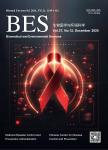Comparison of the Mutagenicity of Exhaust Emissions From Motor Vehicles Using Leaded and Unleaded Gasoline as Fuel
Comparison of the Mutagenicity of Exhaust Emissions From Motor Vehicles Using Leaded and Unleaded Gasoline as Fuel作者机构:AddresscorrespondencetoYUANDongDapartmentofEnvironmentalHealth AddresscorrespondencetoYUANDongDapar
出 版 物:《Biomedical and Environmental Sciences》 (生物医学与环境科学(英文版))
年 卷 期:1999年第12卷第2期
页 面:136-143页
核心收录:
学科分类:1004[医学-公共卫生与预防医学(可授医学、理学学位)] 100402[医学-劳动卫生与环境卫生学] 10[医学]
主 题:line Comparison of the Mutagenicity of Exhaust Emissions From Motor Vehicles Using Leaded and Unleaded Gasoline as Fuel PAHs
摘 要:While Unleaded gasoline has the advantage of eliminating lead from automobile exhaust, its potential to reduce the exhaust gas and particles, merits further examination. In the present studies,the concentrations of hydrocarbons (HC) and earbon monoxides (CO) in emissions were analyzed on Santana engine Dynamometer under a standard test cycle, and total exhaust particles were collected from engines using leaded and unleaded gasoline. It was found that unleaded gasoline reduced the emissions of CO and HC, and decreased the quantity of vehicle exhaust particulate matters by 60%.With the unlead gasoline, only 23 kinds of organic substances, adsorbed in the particles, were identified by gas chromatography/mass spectrometer (GC/MS) while 32 components were detected using the leaded gasoline. The results of in vitro Salmonella/ microsomal test and micronucleus induction assay in CHL cells indicated that both types of gasoline increased the number of histidine-independent colonies and the frequencies of micronucleus induction; no significant differellce was found in their mutagenicity.



